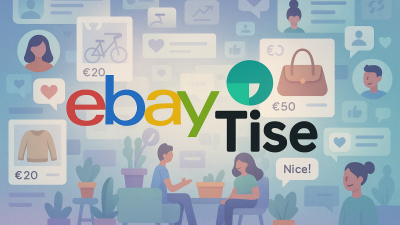Gen Z and Luxury: Aspirations, Installments, and the Hidden Risks of Buy-Now-Pay-Later Culture
Luxury has always represented more than just material value—it reflects status, identity, and personal taste. However, for Generation Z, the definition of luxury is evolving. Born between the mid-1990s and early 2010s, Gen Z is the first fully digital-native generation, blending online influence, ethical considerations, and financial experimentation into how they perceive and consume high-end brands. Social media platforms like Instagram, TikTok, and Pinterest amplify aspirational messaging, creating a sense of immediacy and desire that previous generations never experienced.
Yet, desire does not always equal purchasing power. Many Gen Z consumers are students or early-career professionals navigating limited incomes, student debt, and rising living costs. To bridge the gap between aspiration and affordability, installment plans and Buy-Now-Pay-Later (BNPL) services have emerged as a popular solution. Platforms like Klarna, Afterpay, and Affirm allow younger consumers to acquire luxury goods in smaller, manageable payments rather than full upfront costs.
While these financing options democratize access to luxury, they also introduce hidden risks: missed payments, financial stress, and potential long-term debt. The allure of accessible luxury may inadvertently place young buyers in challenging financial positions, and brands may face reputational or operational challenges if defaults rise.
This article explores the complex relationship between Gen Z and luxury brands, examining their aspirations, the role of installment schemes, and the financial and societal implications of BNPL culture. It provides actionable insights for consumers, brands, and financial service providers navigating this evolving landscape.
Gen Z’s Evolving Perception of Luxury
Generation Z approaches luxury differently than Millennials or Gen X. For them, luxury is less about material accumulation and more about authenticity, experience, and social alignment. Owning a designer handbag or a limited-edition sneaker is no longer just a status symbol—it’s a statement about values, lifestyle, and identity.
Key Trends in Gen Z Luxury Perception:
-
Experience over possession: Gen Z prioritizes experiences, exclusivity, and storytelling over simple product ownership. A Gucci sneaker drop or Hermès capsule collection becomes a participatory event rather than just a transaction.
-
Digital influence: Social media drives desire. Viral content, influencer endorsements, and user-generated reviews shape perceptions and fuel demand for “must-have” luxury items.
-
Ethical and sustainable consumption: Over 65% of Gen Z consumers globally consider sustainability and ethical practices when engaging with brands. Companies with questionable labor practices or environmental impact risk losing credibility with this audience.
-
Global diversity in perception: Luxury means different things depending on geography. In Europe, timeless craftsmanship may dominate, while in the US, trend-driven brands and influencer visibility are prioritized. In Asia, conspicuous consumption and social status often drive demand.
Traditional exclusivity is no longer enough. Luxury brands must combine storytelling, sustainability, and digital presence to resonate with Gen Z. A product without a purpose-driven narrative or social relevance may struggle to capture attention from this demographic.
Gucci, which leverages sustainability campaigns and social media storytelling, and Allbirds, which emphasizes eco-friendly luxury footwear. Both illustrate how Gen Z evaluates luxury through a lens of values, not just price tags.
Buy-Now-Pay-Later and Installment Culture
Luxury, by definition, is often expensive, creating a barrier for younger buyers. To bridge the affordability gap, many Gen Z consumers turn to Buy-Now-Pay-Later (BNPL) schemes and installment plans. These financing options allow consumers to split high-cost items into smaller, periodic payments, often interest-free for short durations.
How BNPL Works:
-
Platforms like Klarna, Afterpay, and Affirm partner with luxury retailers.
-
Consumers select the BNPL option at checkout, dividing the total cost into 3–6 payments.
-
Payment reminders and automatic debits encourage on-time fulfillment, but missed payments can trigger late fees or credit reporting.
Benefits for Gen Z and Brands:
-
Accessibility: Young consumers can acquire aspirational products without large upfront costs.
-
Brand loyalty: BNPL encourages repeat purchases by creating frictionless pathways to acquire desirable goods.
-
Digital-native convenience: Seamless integration with e-commerce platforms fits Gen Z’s tech-first mindset.
Risks and Concerns:
-
Missed payments: Defaults can hurt credit scores, lead to fees, or even result in repossession in rare cases.
-
Debt accumulation: Easy access to installments may encourage overextension.
-
Brand reputation: High default rates or negative media coverage may force brands to rethink financing strategies.
A 2023 McKinsey & Company report found that BNPL users under 25 are twice as likely to miss payments as older users. Yet, the desire for luxury remains strong, creating tension between aspiration and financial responsibility. Brands like Farfetch and Net-a-Porter have reported growth in Gen Z sales due to BNPL, demonstrating that the opportunity outweighs risk if managed responsibly.
Financial Literacy and Hidden Risks
While BNPL and EMIs offer opportunities, financial literacy gaps among Gen Z pose significant risks. Many underestimate long-term implications, interest accrual, or the impact of late payments on their credit profiles.
Key Insights:
-
A 2022 Deloitte Gen Z financial survey revealed that only 42% of respondents felt confident managing installment payments on luxury items.
-
Behavioral psychology: Instant gratification often overrides caution, leading to overcommitment.
-
Credit impact: Missed BNPL payments may be reported to credit bureaus, affecting future loans, rentals, or insurance premiums.
Societal Impact:
-
Young consumers may experience financial stress, anxiety, and pressure to maintain social appearances through luxury consumption.
-
Luxury brands, while benefiting from increased sales, may inadvertently contribute to over-leveraging among young buyers.
Accessing luxury via installments can fulfill identity and social aspirations, but it also introduces ethical and emotional dilemmas. Parents, educators, and fintech platforms face a role in guiding financial literacy while enabling modern, flexible purchasing behavior.
Brand Strategies for Engaging Gen Z Responsibly
Luxury brands targeting Gen Z must balance aspiration with responsibility. The goal is to maintain desirability while minimizing financial harm.
Strategic Approaches:
-
Flexible micro-EMIs: Offering smaller, more frequent payments reduces default risk and makes luxury attainable without excessive debt.
-
Education-focused communication: Brands can provide clear information on payment schedules, interest, and potential penalties.
-
Digital storytelling: Highlighting the craftsmanship, sustainability, and purpose behind products adds intrinsic value beyond price.
-
Subscription or rental models: Platforms like Rent the Runway or LuxeLab allow temporary access to luxury without long-term financial commitments.
-
Community engagement: Exclusive online communities, virtual events, and influencer partnerships foster loyalty while encouraging mindful consumption.
Gucci’s collaboration with Klarna includes transparent payment breakdowns and reminders, helping buyers stay on track. Meanwhile, Allbirds’ eco-conscious brand story adds emotional value, making the financial commitment feel purposeful rather than frivolous.
Brands must treat BNPL not as a loophole for sales but as a tool for responsible engagement, blending aspiration with consumer well-being.
Future Outlook and Market Implications
The intersection of Gen Z, luxury, and BNPL will shape the future of high-end retail:
-
Democratization of luxury: Installments allow a broader audience to engage with high-end products, but exclusivity may shift toward experience-based metrics rather than price.
-
Fintech collaboration: Brands will increasingly partner with financial tech platforms to offer flexible, transparent, and responsible purchasing options.
-
Financial literacy emphasis: Early education and clear communication about installment risks will become central to responsible marketing.
-
Social and cultural shifts: As Gen Z matures, their approach may influence Millennial and Gen X perceptions, creating long-term changes in how luxury is defined, marketed, and consumed.
Ultimately, BNPL offers both opportunity and risk. Luxury brands that embrace transparency, ethical engagement, and flexible financial solutions will thrive in a generation that values both aspiration and responsibility.
Gen Z’s relationship with luxury is redefining the industry. Aspirational, digitally savvy, and socially conscious, this generation seeks authenticity, experience, and ethical alignment in their high-end purchases. Buy-Now-Pay-Later and installment schemes provide a bridge between desire and affordability, democratizing access to luxury items. However, this accessibility comes with hidden risks: financial overextension, late payments, and potential stress for young consumers.
For brands, the challenge is to foster engagement while promoting responsible consumption. Strategies like micro-EMIs, transparent communication, rental models, and purpose-driven storytelling ensure that luxury remains aspirational without compromising financial well-being. For consumers, financial literacy is critical—understanding payment obligations, interest structures, and long-term implications can prevent unintended consequences.
In the long term, Gen Z will continue to reshape luxury markets. Brands that embrace ethical, experience-driven, and digitally native approaches will cultivate loyalty and redefine prestige for a generation that values impact, authenticity, and mindful aspiration over mere ownership. BNPL culture, when managed responsibly, can empower young buyers while driving innovation in luxury retail.
FAQs
1. Why is Gen Z different in their approach to luxury?
Gen Z values authenticity, experience, sustainability, and social alignment over mere ownership.
2. What are BNPL and EMI schemes?
BNPL (Buy-Now-Pay-Later) and EMI (Equated Monthly Installments) allow consumers to split payments into smaller, periodic amounts.
3. What are the risks of using BNPL for luxury items?
Missed payments, fees, credit score impact, and potential over-leveraging are key risks.
4. How can brands engage Gen Z responsibly?
Brands can offer flexible micro-EMIs, transparent communication, subscription models, and purpose-driven storytelling.
5. How does BNPL affect financial literacy?
Without guidance, BNPL may encourage impulsive spending and financial stress among young consumers.
6. Are installment plans profitable for luxury brands?
Yes, they increase accessibility, engagement, and brand loyalty but require careful risk management.
7. What is the long-term societal impact?
BNPL may democratize luxury but also underscores the need for financial literacy and mindful consumption.
Stay informed about Gen Z trends and responsible luxury consumption. Subscribe to our newsletter for insights on consumer behavior, fintech innovations, and market strategies shaping the future.
Note: Logos and brand names are the property of their respective owners. This image is for illustrative purposes only and does not imply endorsement by the mentioned companies.



